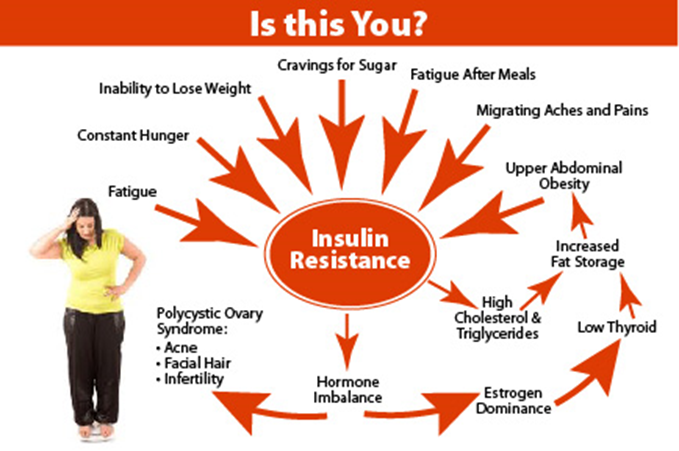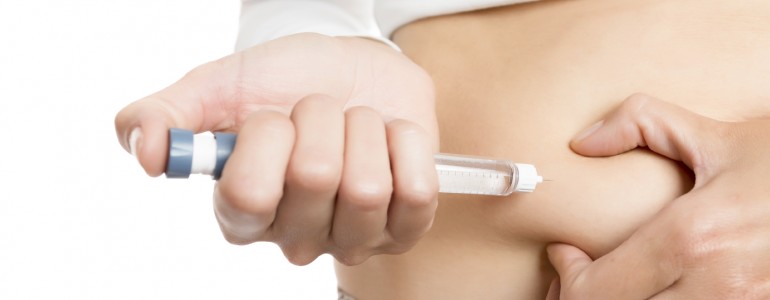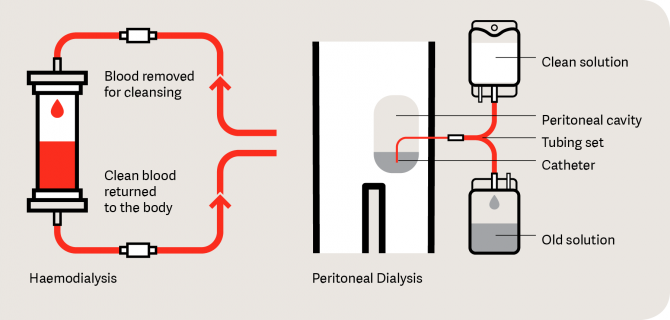Diabetes, Insulin and Blood Sugar Levels.
Diabetes mellitus, usually called diabetes, is a disease in which your body does not make enough insulin or cannot use normal amounts of insulin properly. Insulin is a hormone that regulates the amount of sugar in your blood. A high blood sugar level can cause problems in many parts of your body.
Are there different types of diabetes?
The most common ones are Type 1 and Type 2. Type 1 diabetes usually occurs in children. It is a condition where insulin is not secreted from the pancreas. The organ that produces insulin in the body. It is also called juvenile onset diabetes mellitus or insulin-dependent diabetes mellitus. In this type, your pancreas does not make enough insulin and you have to take insulin injections for the rest of your life. It’s a life long condition.
Type 2 diabetes, which is more common, usually occurs in people over 40 and is called adult onset diabetes mellitus. It is also called non insulin-dependent diabetes mellitus. In Type 2, your pancreas makes insulin, but your body does not use it properly. This is because your body have become insulin resistant due to poor eating habits. The high blood sugar level often can be controlled by following a diet and/or taking medication, although some patients must take insulin.
What does diabetes do to the kidneys?
With diabetes, the small blood vessels in the body are injured. When the blood vessels in the kidneys are injured, your kidneys cannot clean your blood properly. Your body will retain more water and salt than it should, which can result in weight gain and ankle swelling. You may have protein in your urine. Also, waste materials will build up in your blood.
Diabetes also may cause damage to nerves in your body. This can cause difficulty in emptying your bladder. The pressure resulting from your full bladder can back up and injure the kidneys. Also, if urine remains in your bladder for a long time, you can develop an infection from the rapid growth of bacteria in urine that has a high sugar level.
What are the early signs of kidney disease in patients with diabetes?
The earliest sign of diabetic kidney disease is an increased excretion of albumin in the urine. This is present long before the usual tests done in your doctor’s office show evidence of kidney disease, so it is important for you to have this test on a yearly basis. Weight gain and ankle swelling may occur. You will use the bathroom more at night. Your blood pressure may get too high. As a person with diabetes, you should have your blood, urine and blood pressure checked at least once a year. This will lead to better control of your disease and early treatment of high blood pressure and kidney disease. Maintaining control of your diabetes can lower your risk of developing severe kidney disease.
What are the late signs of kidney disease in patients with diabetes?
As your kidneys fail, your blood urea nitrogen (BUN) levels will rise as well as the level of creatinine in your blood. You may also experience nausea, vomiting, a loss of appetite, weakness, increasing fatigue, itching, muscle cramps (especially in your legs) and anemia (a low blood count). You may find you need less insulin. This is because diseased kidneys cause less breakdown of insulin. If you develop any of these signs below, I suggest you seek medical help as soon as possible:
TABLE 1
Signs of Kidney Disease in Patients with Diabetes
- Albumin/protein in the urine
- High blood pressure
- Ankle and leg swelling, leg cramps
- Going to the bathroom more often at night
- High levels of BUN and creatinine in blood
- Less need for insulin or anti-diabetic medications
- Morning sickness, nausea and vomiting
- Weakness, paleness and anemia
- Itching
What will happen if my kidneys have been damaged?
First, the doctor needs to find out if your diabetes has caused the injury. Other diseases can cause kidney damage. Your kidneys will work better and last longer if you:
- Control your diabetes
- Control high blood pressure
- Get treatment for urinary tract infections
- Correct any problems in your urinary system
- Avoid any medicines that may damage the kidneys (especially over-the-counter pain medications)
If no other problems are found, your doctor will try to keep your kidneys working as long as possible. The use of high blood pressure medicines called Angiotensin converting enzyme (ACE) inhibitors has been shown to help slow the loss of kidney function.
How the kidneys are kept working as long as possible?
The kidney doctor, called a Nephrologist, will plan your treatment with you, your family and your dietitian. Two things to keep in mind for keeping your kidneys healthy are controlling high blood pressure in conjunction with an ACE inhibitor and following your renal diabetic diet. Restricting protein in your diet also might be helpful. You and your dietitian can plan your diet together. End of the day it still boils down to what you put into your mouth.
What is end stage renal failure in patients with diabetes?
End stage renal failure, or kidney failure, occurs when your kidneys are no longer able to support you in a reasonably healthy state, and dialysis or transplantation is needed. This happens when your kidneys function at only 10 to 15 percent.
How is kidney failure treated in diabetic patients?
Three types of treatment can be used once your kidneys have failed: kidney transplantation, Hemodialysis and Peritoneal dialysis.
Can a patient with diabetes have a kidney transplant?
Yes. Once you get a new kidney, you may need a higher dose of insulin. Your appetite will improve so your new kidney will break down insulin better than your injured one. You will use steroids to keep your body from rejecting your new kidney. If your new kidney fails, dialysis treatment can be started while you wait for another kidney. Even though there might be a case where the body rejects the new kidney there is still hope of it being accepted. So be positive about giving it a go.
What about pancreas transplants?
Sometimes it is possible to perform a pancreas transplant along with a kidney transplant. Your doctor can advise you about this possibility. Having to do both transplants will definitely be a better option.
What is the future outlook for patients with diabetes?
Today, more and more research dollars are spent on diabetes research. Hopefully, the prevention and cure of diabetes is in our future. In the meantime, you can manage your diabetes better with:
- Home monitoring of your blood glucose levels.
- Maintaining an awareness of controlling your blood pressure, and possibly monitoring your pressure at home.
- Following your special diet.
- Cut the Sugar out for good and live a balanced stress free life.
The reason why i am writing this post is because i was having a good long chat with my client MR. Kather who runs I.M. ambulance services, a non-emergency ambulance service. He transports patients daily from homes to dialysis centers or to the hospital. Most of them are kidney patients and require regular medical assistance. He read about a post i made on Facebook, “Diabetes is not hereditary, Eating habits are.” Both of us felt that more awareness should be created on individual healthcare as there has been a rising case of Diabetes patients in Singapore. Singapore is currently the no.2 nation with most diabetic cases. It is rather alarming to know about such information. I feel that more can be done by Health Promotion Board to get more Singaporeans to be more health conscious. If you know anyone who is living around the North or Woodlands area who requires an ambulance service feel free to contact Mr. Kather for assistance.












Leave A Comment